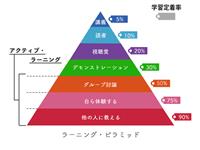Syllabus for “The Business of Tour Operation”
旅行社经营与管理(英)
英文名称:The Business of Tour Operation
课程代码:
学 分:3 学时:50
适用对象:本科
先修课程:旅游学概论、旅游专业英语
考试方式:闭卷
一、课程的性质、教学目的和要求 (Characteristics and Objectives)
课程性质和目的
“The Business of Tour Operation” is a 2-credit course for graduate students majoring in Tourism Management in College of Tourism. Tour business operation is a combination of professional expertise and practice skill on the part of practitioners. Knowledge and techniques are both emphasized in teaching.
The textbook chosen for students was published in English by Longman Group Ltd.. This is the first textbook to look in detail at the subject of tour operating as a business. It is aimed primarily at students on Advanced Leisure and Tourism Courses. This course is assigned 34 class periods and fully taught in English.
This course aims at teaching the students the general procedures of tour business operation, and train them the skills of packaging, brochure design, marketing, financial control and business administration. More than that, students are expected to enhance their ability to communicate and write in professional English.
教学方法
Students attending this course are required to pass the English Proficiency Test of no less than Ban 4, and high level of listening comprehension is a must.
The classroom teaching of this course focuses on classroom communication and presentation so as to improve their skills of listening, speaking, reading and writing in professional English, enlarge their vocabulary of tourism and hospitality English, and train them how to write professional papers. Case studies and multimedia are preferably used in teaching.
(三)教学安排
The subject requires two components of assessments, which are:
End of Module Exam – at the end of the course, there will be a formal written 2 hours examination. This will ask the students to answer questions on what they have learnt. This represents up to 70 percent of the total marks available to the subject.
A Group Project - where the students will be requested to work with 3 - 4 classmates to undertake a piece of research into the issues in tourism industry. They will be required to jointly submit a written report and to make an oral presentation to the class on their findings. This represents 20% of the total marks available for the subject. And attendance and class participation will take the remaining 10%.
二、课程内容与学时分配 (Teaching contents and periods assignment)
The percentage allocation for the course assessment follows below:
Teaching time for this course is 50 periods, including 30 periods of classroom teaching, 16 periods for site study and case study, and still 4 periods for revision. In addition, students are requested to refer to more materials than their textbook and choose topics for writing, reading and discussion.
Continuous Assessment: 30%
Site work and seminars: 20%
Case study: 10%
Examination: 70%
Total 100%
Examination: 70%
Total 100%
SCHEME OF WORK 2005/2006
Chapter 1. Introduction to the business of tour operations(2 periods)
A brief introduction to the tour operators’ business and it’s characteristics, including different types of tour operators and the relationship between operators and travel agencies. Explain the differences between tour operating and other businesses. Key points include:
Define the terms “tour operator” and “ package holiday”
Describe the different categories of the tour operating business
Name the UK’s largest tour operators
Describe the relationships between tour operators and travel agencies, between tour operators and national tourist offices, and between tour operators and the traveling public
Understand the importance of vertical and horizontal integration to tour operation businesses
Chapter 2. The development of tour operating as a business(2 periods)
List the factors necessary for the growth of a mass holiday market and describe how the holiday market has developed and changed during the twentieth century. Key points include:
Explain how the first tour operators went into business?
Explain the main features of the tour operating market in the first half of the 1990s
?
Chapter 3 Putting the package together.(2 periods)
List the stages involved in putting together a programme of package holidays. Discuss the pros and cons of operators owning their own charter airlines. Key points include:
Explain the differences between commitment, allocation and ad hoc arrangements in the contracting of bed space
Describe the differences between time series charters, part charters and ad hoc arrangements in the contracting of flight seats
Understand the role of ground handlers in organizing transfers, excursions, etc.
Discuss the importance of quality control for package holidays
Case Study one: (3 periods) Design an itinerary for a specific tour
Chapter 4 The tour operators’products(2 periods)
Explain the difference between a shor-haul and long-haul product.List the main types of product created by tour operators. Key points include:
Assess which products are the big sellers and which are more specialist.
Describe the particular features of the different types of product?
Recognize which markets are exjpanding and which are contracting?
Chapter 5 (2 periods) Preparing the brochure
Understand the importance of the brochure as a selling tool for tour operators. List the different components of a brochure. Key points include:
Explain the stages in production of the brochure
Understand the trend towards smaller, specialist brochures instead of one all-inclusive edition
?
Chapter 6 Reservations and administration(2 periods)
Describe the work of the main administrative departments of a medium-sized UK tour operator. Describe the role of the sales representative. Key points include:
Explain the different ways in which holiday reservations are made, and weigh up the pros and cons of computerized vis-à-vis manual systems?
List the paperwork and administration required to back up each booking
?
Case Study two: (3) Designing of a brochure for a destination
Chapter 7 Overseas operations(2 periods)
Describe the work of the overseas department. List the other staff that operators employ overseas and their functions. Key points include:
Explain the role of the resort representative?
Explain the procedures to be undertaken during an “emergency”?
Chapter 8 Financial matters(2 periods)
List the different sources of finance available to tour operators. Describe how a holiday cost is calculated. Key points include:
Explain the different price components of a holiday?
Understand the cost consequences of consolidations, amendments, surcharges, etc.
Discuss how costs can be kept down?
Seminar one: How to conduct a feasibility study for a new program(3 periods)
Chapter 9 Marketing for tour operators(2 periods)
Explain the role of a marketing department. Write a press release publicizing a specific product development. Key points include:
Carry out a SWOT analysis for a given tour operating business
Understand the relative importance of the different advertising media
Understand the limitations on advertising freedom
Plan a brochure launch or similar promotional event?
Chapter 10 Law for tour operators(2 periods)
Understand the unique difficulties tour operators face in ensuring their products comply with UK and EU law. List the main laws of concern to tour operators. Key points include:
Explain how breaches of these laws would be handled
Explain the development of consumer protection law
Describe the content of these laws
Describe the industry bodies which have developed to represent the industry and to protect consumers
?
Chapter 11 Tour operating in its environment(2 periods)
Identify those factors outside the tour operators’ control which can nevertheless have a major impact on their businesses. Assess the socio-economic, cultural and environmental impacts tour operators’ actions have on the destinations they feature. Key points include:?
Suggest ways in which the adverse effects of tour operating can be reduced
?
Seminar two: Marketing techniques of tour operators(2 periods)
三、教材和参考书目录 ( Textbook and references)
Textbook: The Business of Tour Operations, Pat Yale, Longman Group Ltd., 1995
References:
TOURISM: Principles, Practices, Philosophies, By MeIntosh/Goeldner/Ritehie, JOHN WILEY & SONS, 1995
HOW TO RESEARCH AND WRITE A THESIS IN HOSPITALITY AND TOURISM, By James M. Poynter, JOHN WILEY & SONS, 1993
TOURISM, A NEW PERSPECTIVE, By Peter M. Burns and Andrew Holden, PRENTICE HALL, UK, 1995
Tourism Management, David Weaver & Martin Oppermann, John Wiley & Sons, 2000
Tourism Management, edited by Chris Ryan & Stephen Page, Pergamon, 2000
| 课件名称: | 硕博(教学大纲) |
| 课件分类: | 管理 |
| 课件类型: | 教学大纲 |
| 文件大小: | 185.35KB |
| 下载次数: | 4 |
| 评论次数: | 2 |
| 用户评分: | 10 |
- 3. 硕博(教学大纲):200510515339
- 4. 硕博(教学大纲):200510515359
- 5. 硕博(教学大纲):200510516812
- 6. 硕博(教学大纲):200510516852
- 7. 硕博(教学大纲):200510516924
- 8. 硕博(教学大纲):20051111143023
- 9. 硕博(教学大纲):20051115153052
- 10. 硕博(教学大纲):20051119173025
- 11. 硕博(教学大纲):20051128144414
- 12. 硕博(教学大纲):20051128144642
- 13. 硕博(教学大纲):2005112814469
- 14. 硕博(教学大纲):2005122385019
- 15. 硕博(教学大纲):2005128115144
- 16. 硕博(教学大纲):200631694011
- 17. 硕博(教学大纲):200632011316
- 18. 硕博(教学大纲):200641192558
- 19. 硕博(教学大纲):2006518115336
- 20. 硕博(教学大纲):200651811538
- 21. 硕博(教学大纲):20065221609




